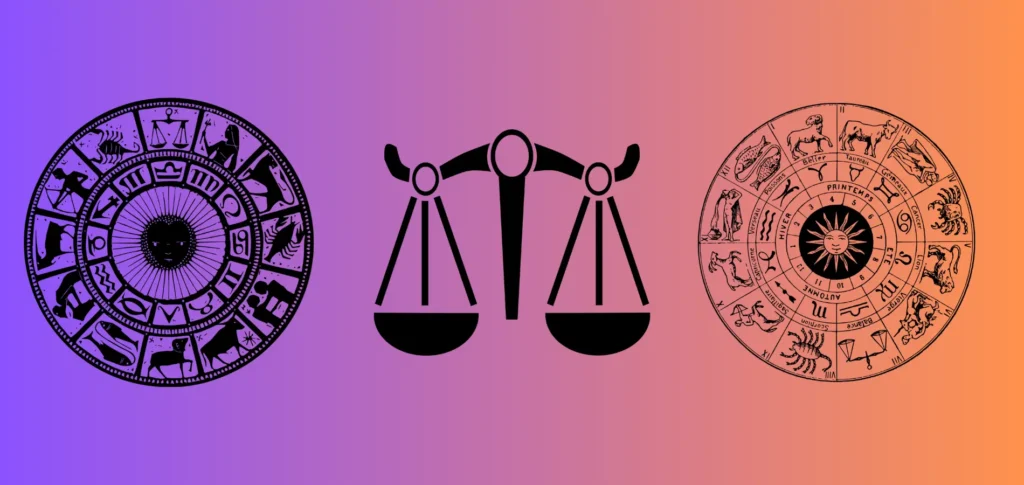Arvind Kejriwal's Incarceration: Supreme Court Defers to High Court's Jurisdiction
Arvind Kejriwal, a prominent political figure in India and the Chief Minister of Delhi, continues to be held in custody as the Supreme Court of India has decided not to intervene in his bail plea. Instead, the Supreme Court has deferred the matter to the High Court, emphasizing that the lower court should first address the issues at hand. This decision has sparked extensive debates and discussions within political and legal circles, shedding light on the complex interplay between judicial processes and political dynamics in India.
Background of the Case
Arvind Kejriwal, known for his anti-corruption stance and significant contributions to Delhi’s political landscape, found himself embroiled in legal troubles that led to his arrest. The specifics of the charges against him are rooted in allegations of corruption and misuse of power, accusations that Kejriwal and his supporters vehemently deny. His arrest has been a contentious issue, with opinions sharply divided along political lines.
The immediate context of his incarceration involves a series of legal battles that have seen Kejriwal’s legal team petitioning for bail at various judicial levels. The case has been marked by a labyrinthine legal process, typical of high-profile cases in India where political stakes are high.
Supreme Court's Stance
In its recent ruling, the Supreme Court refrained from passing an immediate order on Arvind Kejriwal bail plea, directing the case back to the High Court. This decision underscores a critical aspect of the Indian judicial system: the principle of hierarchy and the importance of allowing lower courts to adjudicate matters before they reach the apex court.
The Supreme Court’s decision can be seen as an affirmation of procedural propriety. By deferring to the High Court, the Supreme Court maintains the integrity of the judicial process, ensuring that all legal avenues at the lower levels are exhausted before higher intervention is sought. This approach not only preserves the structure of judicial review but also reinforces the importance of detailed examination at every judicial level.
Reactions and Implications
The decision has elicited varied responses from different quarters. Supporters of Arvind Kejriwal argue that his continued detention is politically motivated and that the judiciary should expedite his release to uphold justice. They view the Supreme Court’s decision as a procedural delay that prolongs Kejriwal’s unjust imprisonment.
Conversely, critics assert that the judicial process must be allowed to run its course without undue haste. They argue that the High Court is the appropriate forum for a detailed examination of the charges against Kejriwal, and any premature intervention by the Supreme Court could undermine judicial due process.
The political ramifications of the Supreme Court’s decision are significant. Kejriwal’s party, the Aam Aadmi Party (AAP), has leveraged his arrest as a rallying point, framing it as a struggle against political victimization. This narrative has found resonance among many of his supporters and has the potential to influence public opinion and electoral outcomes.
Legal Perspectives
From a legal standpoint, the Supreme Court’s decision is a textbook example of adherence to judicial hierarchy. The High Court is tasked with the initial assessment of bail pleas and other related matters, allowing for a comprehensive examination of facts and arguments. Only after this can the Supreme Court provide a final adjudication if necessary.
This approach also highlights the checks and balances inherent in the judicial system. Each level of judiciary functions independently, ensuring that cases are meticulously reviewed at multiple stages. This reduces the likelihood of errors and ensures a fair trial.
The Path Ahead
As the case returns to the High Court, the upcoming judicial proceedings will be closely watched. The High Court’s decisions in the coming days will be crucial in determining Kejriwal’s immediate future. Legal experts suggest that the High Court’s ruling on the bail plea will likely be influenced by the strength of the evidence presented by both sides and the legal arguments put forth.
For Kejriwal, this legal battle is also a test of his political resilience. His ability to navigate this crisis will significantly impact his political career and the fortunes of the Aam Aadmi Party. His supporters hope that a favorable judicial outcome will not only secure his release but also galvanize public support for his leadership.
Broader Implications for Indian Politics
The incarceration of a sitting Chief Minister is a rare event and carries broader implications for Indian politics. It raises questions about the intersection of law and politics, and the extent to which legal actions can be perceived as politically motivated.
This case also underscores the vulnerability of political leaders to legal challenges, irrespective of their position. It highlights the critical role of the judiciary in maintaining the balance of power and ensuring that justice is served without fear or favor.
Conclusion
Arvind Kejriwal continued detention and the Supreme Court’s decision to defer to the High Court represent a complex interplay of legal principles, political dynamics, and judicial processes. While the immediate future remains uncertain, the case will undoubtedly have lasting implications for Kejriwal, the Aam Aadmi Party, and the broader political landscape in India.
As the High Court prepares to take up the matter, it will be essential for all stakeholders to respect the judicial process and allow the courts to function independently. The integrity of the judicial system depends on such adherence to due process and the rule of law.
In the end, the resolution of this case will be a testament to the strength and resilience of India’s democratic and judicial institutions. Whether it leads to Kejriwal’s release or upholds his detention, the decision will be a crucial chapter in the ongoing narrative of Indian politics and governance.
Detailed Examination of Judicial Hierarchy and Process
The Supreme Court’s decision to defer the case to the High Court highlights the intricate judicial hierarchy in India. The judiciary operates on multiple levels, each serving a distinct role in the judicial process. This hierarchy ensures that cases are reviewed comprehensively and systematically, allowing for thorough examination at each level before reaching the Supreme Court.
The High Court is the primary forum for adjudicating bail pleas and related matters. It conducts an exhaustive review of the evidence, hears arguments from both the prosecution and the defense, and delivers a reasoned judgment. This detailed scrutiny is essential for ensuring that the judicial process is fair and just.
By deferring to the High Court, the Supreme Court reinforces the importance of this hierarchical structure. It emphasizes that the High Court must be given the opportunity to conduct its review without undue interference. This approach not only respects the judicial process but also ensures that the case is examined thoroughly at all levels.
Checks and Balances in the Judicial System
The judicial system in India is characterized by a robust system of checks and balances. Each level of the judiciary functions independently, providing multiple layers of review and scrutiny. This system is designed to minimize errors and ensure that justice is served.
The High Court’s role in this system is crucial. It serves as the first appellate court for cases from the lower courts and conducts a comprehensive review of the facts and legal arguments. This detailed examination is essential for ensuring that the judicial process is thorough and fair.
The Supreme Court’s decision to defer the case to the High Court underscores the importance of these checks and balances. It emphasizes that the High Court must be given the opportunity to conduct its review and deliver a reasoned judgment. This approach ensures that the case is examined comprehensively and that the judicial process is respected.
Political Implications and Public Perception
The Supreme Court’s decision to defer the case to the High Court has significant political implications. Arvind Kejriwal supporters argue that his continued detention is politically motivated and that the judiciary should expedite his release. They view the Supreme Court’s decision as a procedural delay that prolongs what they see as his unjust imprisonment.
Conversely, critics argue that the judicial process must be allowed to proceed without undue haste. They maintain that the High Court is the appropriate forum for a detailed examination of the charges against Arvind Kejriwal. They argue that any premature intervention by the Supreme Court could undermine the judicial process.
The political ramifications of the Supreme Court’s decision are significant. Arvind Kejriwal party, the Aam Aadmi Party (AAP), has used his arrest as a rallying point, framing it as a struggle against political victimization. This narrative has resonated with many of his supporters and has the potential to influence public opinion and electoral outcomes.
Legal and Political Resilience
For Arvind Kejriwal, this legal battle is also a test of his political resilience. His ability to navigate this crisis will significantly impact his political career and the fortunes of the Aam Aadmi Party. His supporters hope that a favorable judicial outcome will not only secure his release but also galvanize public support for his leadership.
The legal battle also highlights the broader implications for Indian politics. The incarceration of a sitting Chief Minister is a rare event and carries broader implications for Indian politics. It raises questions about the intersection of law and politics, and the extent to which legal actions can be perceived as politically motivated.
This case underscores the vulnerability of political leaders to legal challenges, irrespective of their position. It highlights the critical role of the judiciary in maintaining the balance of power and ensuring that justice is served without fear or favor.
Conclusion
Arvind Kejriwal continued detention and the Supreme Court’s decision to defer to the High Court represent a complex interplay of legal principles, political dynamics, and judicial processes. While the immediate future remains uncertain, the case will undoubtedly have lasting implications for Kejriwal, the Aam Aadmi Party, and the broader political landscape in India.
As the High Court prepares to take up the matter, it will be essential for all stakeholders to respect the judicial process and allow the courts to function independently. The integrity of the judicial system depends on such adherence to due process and the rule of law.
In the end, the resolution of this case will be a testament to the strength and resilience of India’s democratic and judicial institutions. Whether it leads to Arvind Kejriwal release or upholds his detention, the decision will be a crucial chapter in the ongoing narrative of Indian politics and governance.
- Mahindra XUV 3XO: Is It Worth Your Investment? Expert Analysis.
- Force Gurkha Five door vs Three door: what’s different?
- Akshay Kumar Tests Positive For COVID-19
- The Attempted Assassination Of Donald Trump
- List of Elite Guests That Attended Anant And Radhika’s Wedding
- Should NOK Rules Be Revised?
- Noise 4 Wireless Headphones To Launch In India on July 12
- Karnataka Man Distributes Sugar for T20 World Cup Win
- Menstrual Leave in India: Supreme Court Considers Both Sides
- Traffic Restrictions in Mumbai for Anant Ambani Wedding
- “Mirzapur Season 3: A New Era Begins”
- Bajaj Launched India’s First CNG Motorcycle Bajaj Freedom 125
- Mahindra Introduces New Features In Scorpio-N Z8 Range
- Why the Independence Day celebrates on fourth on July United States
- 116 Killed In Stampede In Hathras, Uttar Pradesh
- Why Team India Is Stranded In Barbados?
- Anand Mahindra Dedicates Post to Hardik Pandya Over T20 World Cup 2024 Win?
- Legendary Indian Cricketers Bid Farewell To T20 International Cricket
- Family of 7 Swept Away by Swollen Waterfall Near Mumbai?
- India vs South Africa LIVE Score: T20 World Cup 2024 Final – Rohit Sharma’s Team India Wins T20 WC After 17 Years










